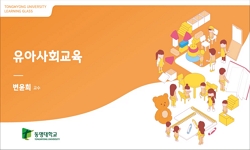This paper examines the work of Philippe Arie s on the history of childhood and family focusing on its implications for the history of education. Philippe Arie s` work on history of childhood, originally published in France in 1960, gained wide popula...
http://chineseinput.net/에서 pinyin(병음)방식으로 중국어를 변환할 수 있습니다.
변환된 중국어를 복사하여 사용하시면 됩니다.
- 中文 을 입력하시려면 zhongwen을 입력하시고 space를누르시면됩니다.
- 北京 을 입력하시려면 beijing을 입력하시고 space를 누르시면 됩니다.

필립 아리에스의 아동가족사 연구에 대한 고찰 -로렌스 스톤과의 비교를 중심으로 = Philippe Ari e s on the history of childhood and family in the Ancien Re gime France: A comparison with Lawrence Stone
한글로보기https://www.riss.kr/link?id=A99603278
- 저자
- 발행기관
- 학술지명
- 권호사항
-
발행연도
2009
-
작성언어
-
-
주제어
필립 아리에스 ; 로렌스 스톤 ; 아동가족사 ; 심성사 ; 아날학파 ; 공동체성 ; 사회성 ; Philippe Arie s ; Lawrence Stone ; history of childhood and family ; socialit e ; history of mentality ; the Annales
-
KDC
300
-
등재정보
KCI등재
-
자료형태
학술저널
-
수록면
120-149(30쪽)
- DOI식별코드
- 제공처
- 소장기관
-
0
상세조회 -
0
다운로드
부가정보
다국어 초록 (Multilingual Abstract)
This paper examines the work of Philippe Arie s on the history of childhood and family focusing on its implications for the history of education. Philippe Arie s` work on history of childhood, originally published in France in 1960, gained wide popularity after it was translated into English in 1961 in the USA. Numerous accounts have been made over the book for the previous decades. This study is to reappraise Arie s` work in light of his understanding of modernity, especially focusing on the notion of pre-modern socialit e as opposed to the individualism, which developed with the rise of the affectionate nuclear family. In this paper, the historical approach of Arie s is compared with that of Lawrence Stone, a critic of him who later published a book on the history of family which shares some striking similarities with the work of Arie s. Focusing on the methodology and thesis of Arie s, this paper compares the work with Stone`s as a point of comparison to clarify and problematize the questions raised in the history of childhood and family.
동일학술지(권/호) 다른 논문
-
갱장기(更張期) 조선(朝鮮), 관리등용제도 개혁과 (성균관경학과)成均館經學科
- 한국교육사학회
- 김경용 ( Gyung Yong Kim )
- 2009
- KCI등재
-
일제강점기 충북 중등교육의 사례연구 -청주고등보통학교의 학생과 교사의 사회적 배경 및 진로를 중심으로-
- 한국교육사학회
- 김동환
- 2009
- KCI등재
-
독일통일 과정과 이후 구동독 대학의 변화 -구조와 인적 변화를 중심으로-
- 한국교육사학회
- 김상무 ( Sang Mu Kim )
- 2009
- KCI등재
-
- 한국교육사학회
- 이미종 ( Mi Jong Lee )
- 2009
- KCI등재




 KISS
KISS







